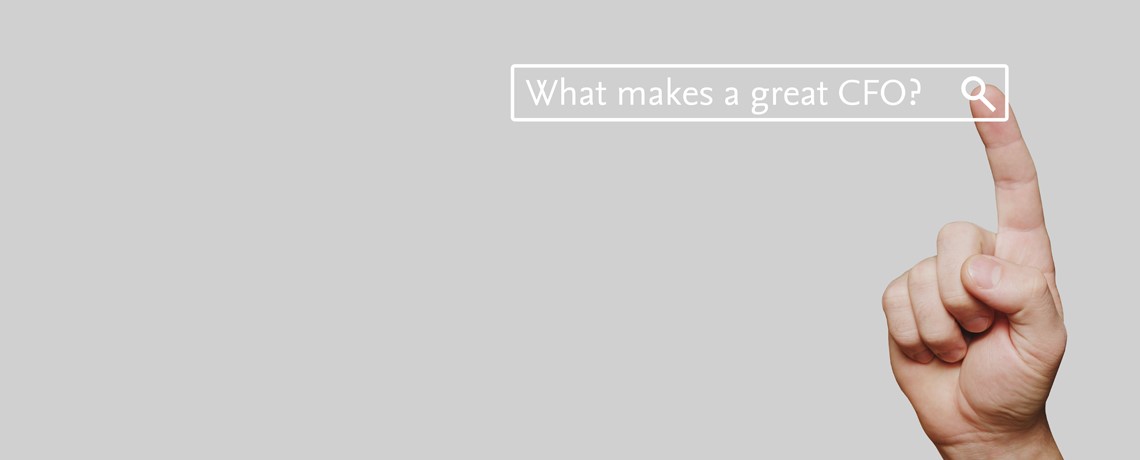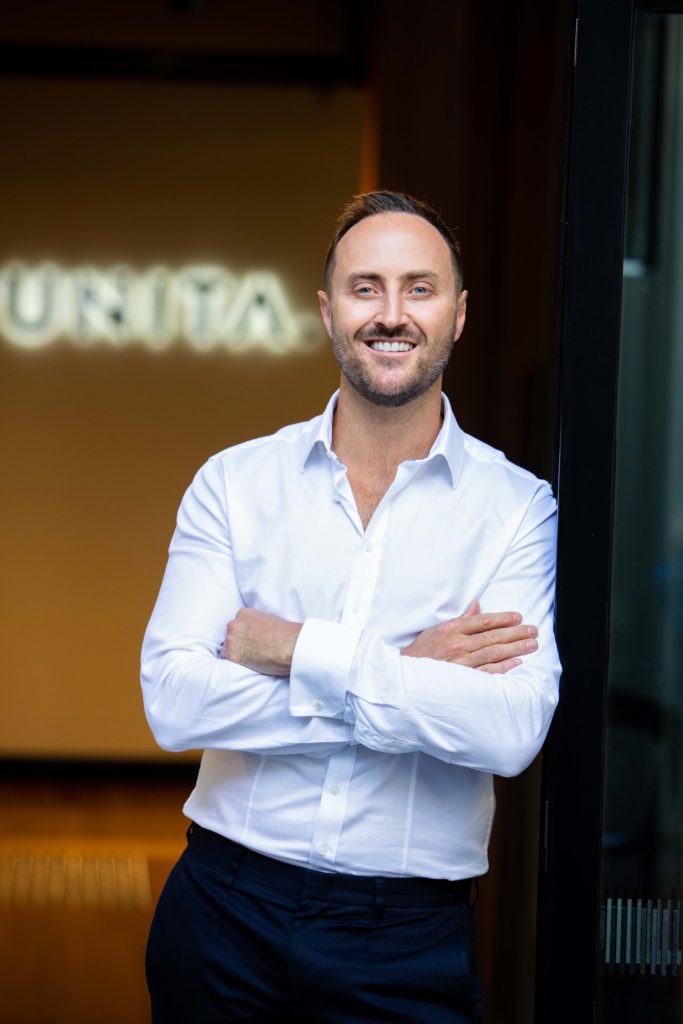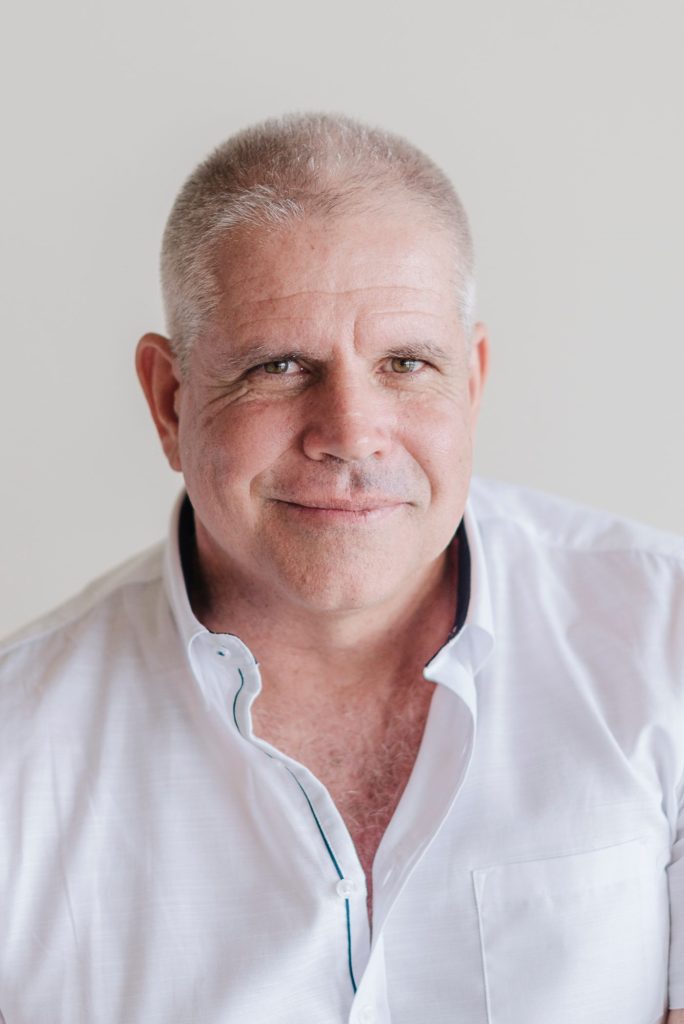
- Author: Nicole Madigan
- Posted: May 17, 2021
What do CEOs look for in their CFOs?
Once upon a time, it was a back-of-the-office role, focused on number crunching, data provision, and CEO support, but these days, the role of a company CFO is so much more than that.
Broad and encompassing, CEOs are increasingly relying on their CFOs to play a crucial leadership role within their organisation, requiring innovative thinking, creativity, and high-level interpersonal skills.
“Historically, a CFO was a back-of-office role that worked in the shadows with the CEO or MD,” says Unita CEO, Rob Rowe.
“However, today they are required to be more involved with broader business to understand not only the core, but the business as a whole, to develop more informed plans and strategies to make the business better.”

For Rowe, along with financial acumen, likeability is critical when it comes to choosing the right CFO for his team.
“They need to be likeable, as one their core duties is to challenge (the status quo), and work with others to improve the business.
“Without doubt, if your CFO has a low EQ (emotional intelligence) or is not invested in the business and its people, then they are not going to last, or make a positive impact.”
Along with likability though, Rowe believes an effective CFO should bring with them an element of pessimism, and the ability to ask ‘why?’.
“Often people don’t like to be challenged; and it’s the job of the CFO to play devil’s advocate, to challenge, to explore alternatives and make reason of everything.”
At Unita, the role of CFO has further evolved since the arrival of COVID-19, which forced the company to make unprecedented changes.
“The CFO position became an internal strategic role to develop strategies in order to survive, through leaning OpEx, reviewing organisation structure, systems and, above all, seamless ways to manage and streamline their departments.”
At Youngcare, it was those unique characteristics held by CFO Jenny Barends, that enabled the organisation to continue to perform seamlessly throughout the COVID-19 pandemic.
“Jenny is one of the main reasons Youngcare emerged out of Covid in a much stronger position than prior to the outbreak of the pandemic,” says Youngcare CEO, Anthony Ryan.
“I believe most organisations have come to the realisation that the counsel, peripheral vision, and strategic thinking of CFOs has been underrated.
“The pandemic has provided the opportunity for all organisations to understand that the role of CFO is key to building a robust and forward-thinking organisation.
“No longer are they the people that sit behind the numbers. Innovative organisations now imbed their role into every aspect of their strategic operations.”

Ryan describes his CFO as the ‘ying to his yang’, providing the mechanisms to implement his strategies, to achieve Youngcare’s primary goal of exiting young people out of institutional care across Australia.
“Without her counsel, Youngcare would be all ideas and no base,” he says.
“With an ability to take off the blinkers and understand the intertwining impacts of every strategic decision in the business, our CFO has extraordinary vision.
“A patient teacher that sets outs time to educate staff about how to plan and manage financial growth.”
Ryan agrees with Rowe’s views on likability and believes the modern day CFO must also be a good communicator with an ability to build positive relationships.
“Networking is a key component of the CFO role,” he says.
“I think CFOs that stay behind closed doors are limiting their role within the organisation.
“Our CFO is the best person to get out into the community to articulate our mission, and to give confidence in the extraordinary amount of rigour that sits behind each of our decisions.”
Adnan Catakovic, CEO of City Fertility, takes it one step further, with the belief that not only does the contemporary CFO require adaptable communication skills, but also empathy, along with the ability to develop strong interpersonal relationships with the varied audience they interact with on a daily basis.
“Whilst the communication of often complicated and, to be honest often mundane, financial information is important, the ability to adapt the tone and message to the appropriate audience is a fundamental skill.
“This is far more challenging than many novice CFOs comprehend initially. For a CFO to be able to assist staff, and in our case clinicians, to develop and understand budgets, requires an ability to communicate and ‘read the room’ that can be complicated.”
According to Catakovic, Covid 19 has demonstrated that while high end financial dealings with external stakeholders has not significantly changed, many CFOs have been faced with a once in a lifetime realisation that financial ruin on a global scale can affect individual staff within an organisation, through no fault of their own.
“The ability to dispassionately critically analyse and inform of the financial impacts, must at a key level be layered with empathy for the human beings affected.
“I know many CFOs who failed here.”
It is these unique skills that will enable CFOs to become effective CEOs in the future, says Catakovic.
“Not all CFOs can become good CEOs if they do not develop leadership and human empathy.
“Whilst CFOs are far more integrated now, they do still maintain a solid framework within which they can operate or find comfort.
“The CEO role does not give you that tether, and requires more flexibility and dynamic thinking at times.
“Managing staff and Boards is an incredible challenge that must be viewed through many paradigms.”
For Jason Daniel, CEO and founder of LSKD, an entrepreneurial mindset, or the ability to understand the entrepreneurial vision, is essential.

“The role of a CFO is not just an accountant, but someone who gives the team confidence on making key decisions to keep moving forward, to grow, and identify key areas on which to focus energy,” says Daniel, who ran his company for more than ten years without a CFO.
“My personal experience is I did not know I needed a CFO until I met our CFO, Matt Geldard, in August, 2018,” he says.
“This has helped me to understand the power of having a effective CFO to drive the business forward and make better decisions. Having someone to talk to constantly is an enormous support to the founder or CEO’s journey.”
The combination of a creative and analytical mind is a powerful characteristic for any professional, according to Daniel, and particularly so when it comes to the company CFO.
“The CFO should be engrained in the company culture, and align with its mission and values, while effectively sharing data to each department, to help individual teams, and the team overall, achieve success.”
Author

Nicole Madigan is a widely published journalist, having written for numerous high profile publications including AFR, CFO Magazine A/NZ, The Courier Mail, The Australian, Sunday Life, The Sunday Mail, as well as online publications, such as news.com.au, Domain, The SMH, Brisbane Times, among others.








